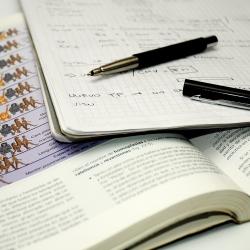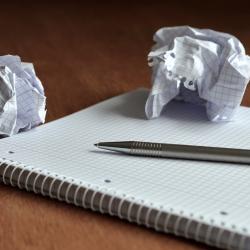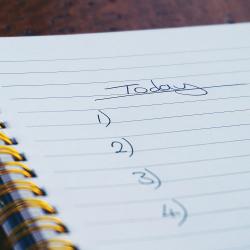How to Study Smart, Not Hard: Tips for Maximum Efficiency
The pressure to excel academically is higher than ever. Students are constantly searching for ways to optimize their study habits and achieve better results without necessarily increasing the time spent hitting the books. The concept of studying "smart" as opposed to just studying "hard" has gained significant traction. Here are some effective strategies to help you study more efficiently, ensuring maximum learning with minimal time and effort.
Understanding the Difference
Studying hard often involves spending long hours poring over textbooks, memorizing information, and keeping a rigid schedule. In contrast, studying smart focuses on a strategic approach where you maximize retention and understanding in the shortest time possible. It's about quality over quantity, leveraging techniques that enhance brain function and information retention.
Tips for Maximum Efficiency
1. Set Clear Goals
Understanding what you want to achieve in each study session can direct your efforts more efficiently. Whether it's understanding a particular chapter or solving a set of problems, having clear objectives helps keep your study sessions focused and productive.
2. Prioritize Your Tasks
Not all study material holds equal weight. Use the Pareto Principle – the idea that 20% of your efforts can lead to 80% of your results. Identify the most crucial parts of your syllabus that can offer the most significant understanding or points and prioritize them.
3. Leverage Active Learning
Active learning involves engaging with the material in a dynamic way, rather than just passively reading or listening. Techniques such as summarizing what you've learned, teaching the content to someone else, or applying concepts to real-world problems can enhance understanding and retention.
4. Utilize Spaced Repetition
Spaced repetition is a proven memory-retention technique. Instead of cramming, review the material at increasing intervals. Apps like Anki or Quizlet can help you schedule these reviews effectively, enhancing long-term retention of the knowledge.
5. Take Regular Breaks with the Pomodoro Technique
The Pomodoro Technique involves studying for a focused 25-minute block followed by a 5-minute break. This method aids in maintaining concentration and prevents burnout. After four Pomodoros, you take a longer break, allowing your brain time to assimilate the information.
6. Adopt Multisensory Learning Techniques
Incorporate different senses to improve memory retention. This could involve listening to audio lectures, creating mind maps, or using flashcards. The combination of visual, auditory, and kinesthetic learning styles caters to various brain processing methods, enhancing comprehension.
7. Practice Retrieval
Actively recalling information is more effective than simply reviewing it. Use flashcards, practice tests, or engage in group discussions to help retrieve information from memory, reinforcing what you've learned and identifying areas that require more focus.
8. Optimize Your Study Environment
A dedicated, comfortable study environment free from distractions can significantly boost your concentration and efficiency. Ensure good lighting, a comfortable chair, and keep all necessary materials at hand. Use noise-cancelling headphones or background music if it helps maintain focus.
9. Stay Physically and Mentally Healthy
Physical exercise, sufficient sleep, and a balanced diet play crucial roles in maintaining the brain's optimal functionality. Incorporate activities like yoga or meditation to reduce stress and improve concentration levels. Adequate hydration and balanced nutrition can also enhance cognitive function.
10. Review and Adapt
Regularly evaluate your study methods to ensure they're effective. Be open to adapting and incorporating new strategies if something isn't working. Every student is different, and what works for one person may not be as efficient for another.
Conclusion
Studying smart is about making systematic, incremental changes to how you approach your learning process. By setting clear goals, prioritizing tasks, using active learning techniques, and taking care of your physical and mental health, you can significantly enhance your study efficiency. Remember, effective studying is not about the number of hours you put in, but the quality of those hours. Start implementing these strategies and watch your academic performance soar without burning yourself out.






















